EPIIC 2016-17: Order and Chaos: Diplomacy and Force in a Changing World
EPIIC 2016-17
Order and Chaos: Diplomacy and Force in a Changing World
EXP 0091F
Tuesdays, Thursdays, 3:00-5:30pm, Lane 100
SYLLABUS
(in progress)
Part I
The World Around Us: Its Impact on Peace and Diplomacy
Tuesday, September 6
Orientation/Introduction
Wednesday, September 7 (special class 3:00-4:00pm, Olin 007)
Order and Chaos: The World Around Us
Readings:
- World Order by Henry Kissinger (New York: 2014), pp 276-329
- The Breaking of Nations: Order and Chaos in the Twenty-First Century by Robert Cooper (UK: 2003), pp 81-152
- “Force and Diplomacy in the Nuclear Age” by Henry A Kissinger, Foreign Affairs, April 1956
- “The Sources of Soviet Conduct” by X (George Kennan), Foreign Affairs, 1947
- “Inside Diplomacy: An Interview with Kissinger” by Robert Bendiner, Current, November 1983
- “The Great Powers: Then and Now” by Paul Kennedy, The New York Times, Aug 13, 2013
Tuesday, September 13
Refugees in Europe as a Pre-Cursor of Global Problems and Challenges to the World Order
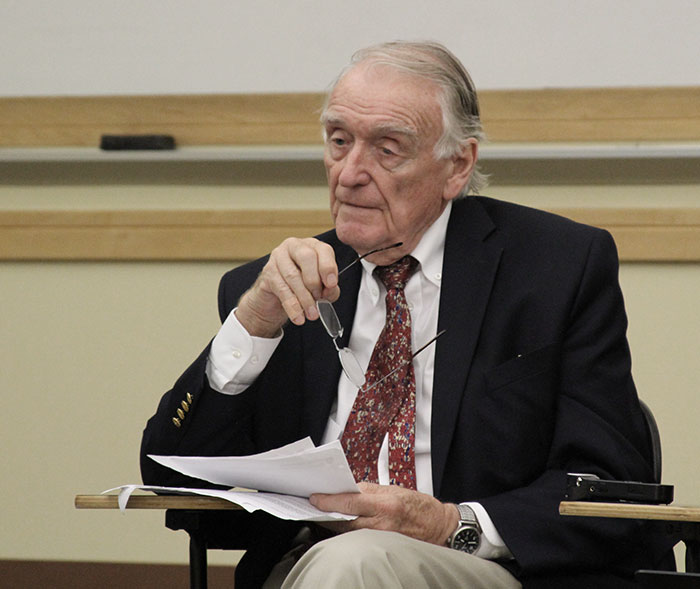 Guest Lecturer: Karl Kaiser
Guest Lecturer: Karl Kaiser
Karl Kaiser is Adjunct Professor of Public Policy at the Kennedy School and Senior Associate of the Program on Transatlantic Relations of the Weatherhead Center for International Affairs. He was a Director of the German Council on Foreign Relations, Bonn/Berlin and an advisor to Chancellors Brandt and Schmidt. He was a member of the German Council of Environmental Advisors. He is a recipient of the Atlantic Award of NATO. Professor Kaiser is the author or editor of several hundred articles and about fifty books in the fields of world affairs, German, French, British and US foreign policy, transatlantic and East-West relations, nuclear proliferation, strategic theory, and international environmental policy.
Readings:
- “The European Disunion: How the Continent Lost its Way” by Ngaire Woods, Foreign Affairs, December 14, 2015
- “The Strongwoman of Europe: Germany's Principled Leadership” by Claire Greenstein and Brandon Tensley, Foreign Affairs, April 6, 2016
- “Europe's Failed Refugee Policy: The Crisis in the Mediterranean Continues” by Megan Greene and R. Daniel Kelemen, Foreign Affairs, June 28, 2016
- “Europe’s Migration Crisis” by Jeanne Park, Council on Foreign Relations Backgrounder, September 23, 2015
- “Foreign Policy Responses to a Continuing Refugee Crisis” from the European Council on Foreign Relations (available online)
Thursday, September 15
Religion and Politics
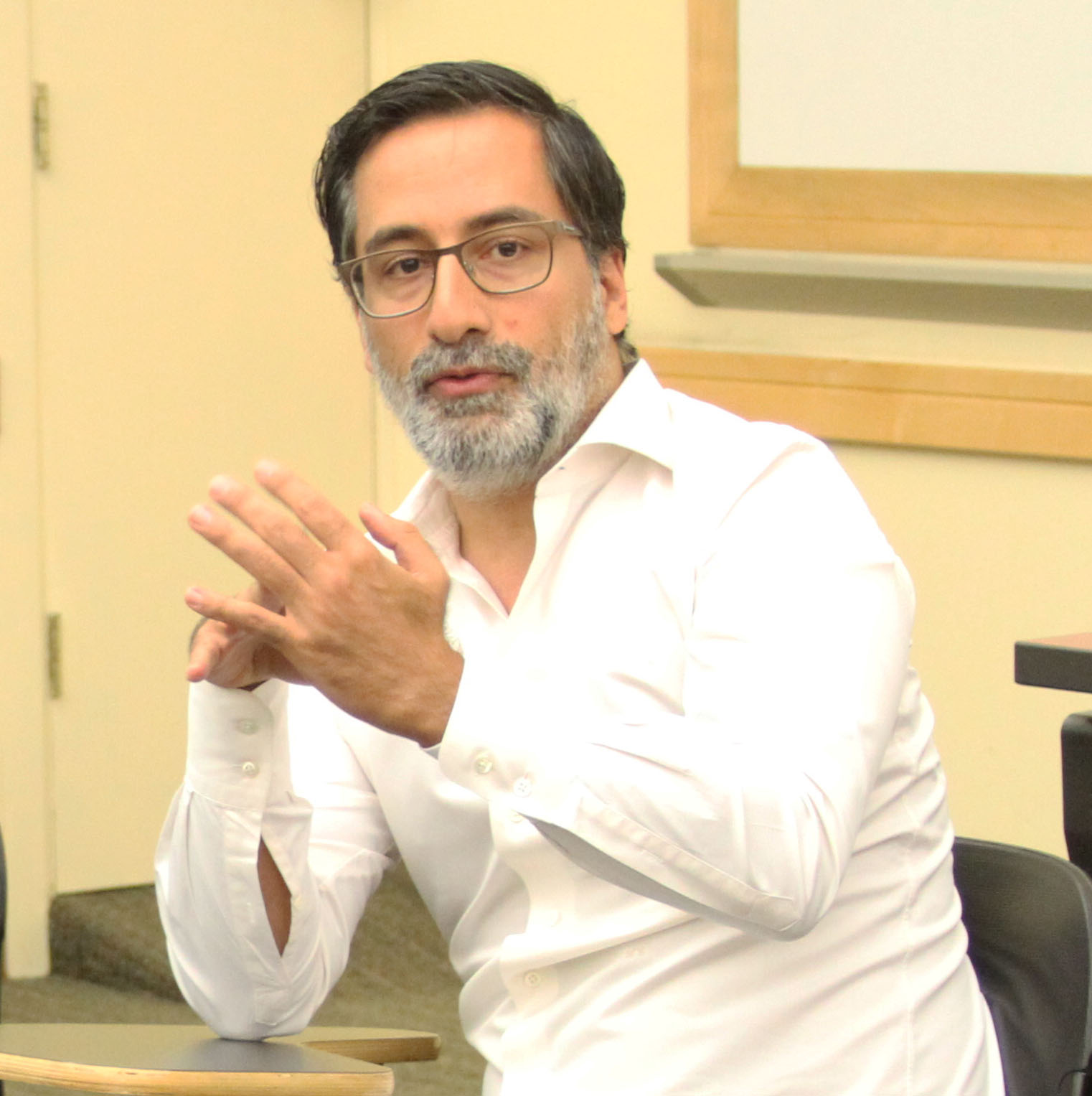 Guest Lecturer: Alexander Görlach
Guest Lecturer: Alexander Görlach
Alexander Görlach is the founder, publisher and editor-in-chief of The European and a Visiting Scholar at the Center for European Studies at Harvard University. Prior to founding The European, Görlach worked for several major German newspapers and broadcasters. He served as online editor of the political monthly Cicero and regularly appears as guest commentator on N24 television. Having doctorates in theology and linguistics, Alexander Goerlach had several teaching assignments, amongst others at Freie Universität Berlin. He is a Senior Advisor to the Berggruen Institute and The World Post and a distinguished columnist for Die Wirtschaftswoche. During his stay at CES, he is working on a book on The Future of Secularism in Europe and the US.
Readings:
- “Putin's Patriarch: Does the Kremlin Control the Church?” by George Soroka, Foreign Affairs, February 11, 2016
- “Mosque and State: The Future of Political Islam” by Malise Ruthven, Foreign Affairs, September/October 2016
Tuesday, September 20
Search for International Order: Great Powers Then and Now
Readings:
- The World America Made by Robert Kagan (New York: 2012), all
- The Post-American World by Fareed Zakaria (New York: 2008), pp 1-86
Thursday, September 22
Does Geography Matter? Mapping Today's and Tomorrow's Conflicts
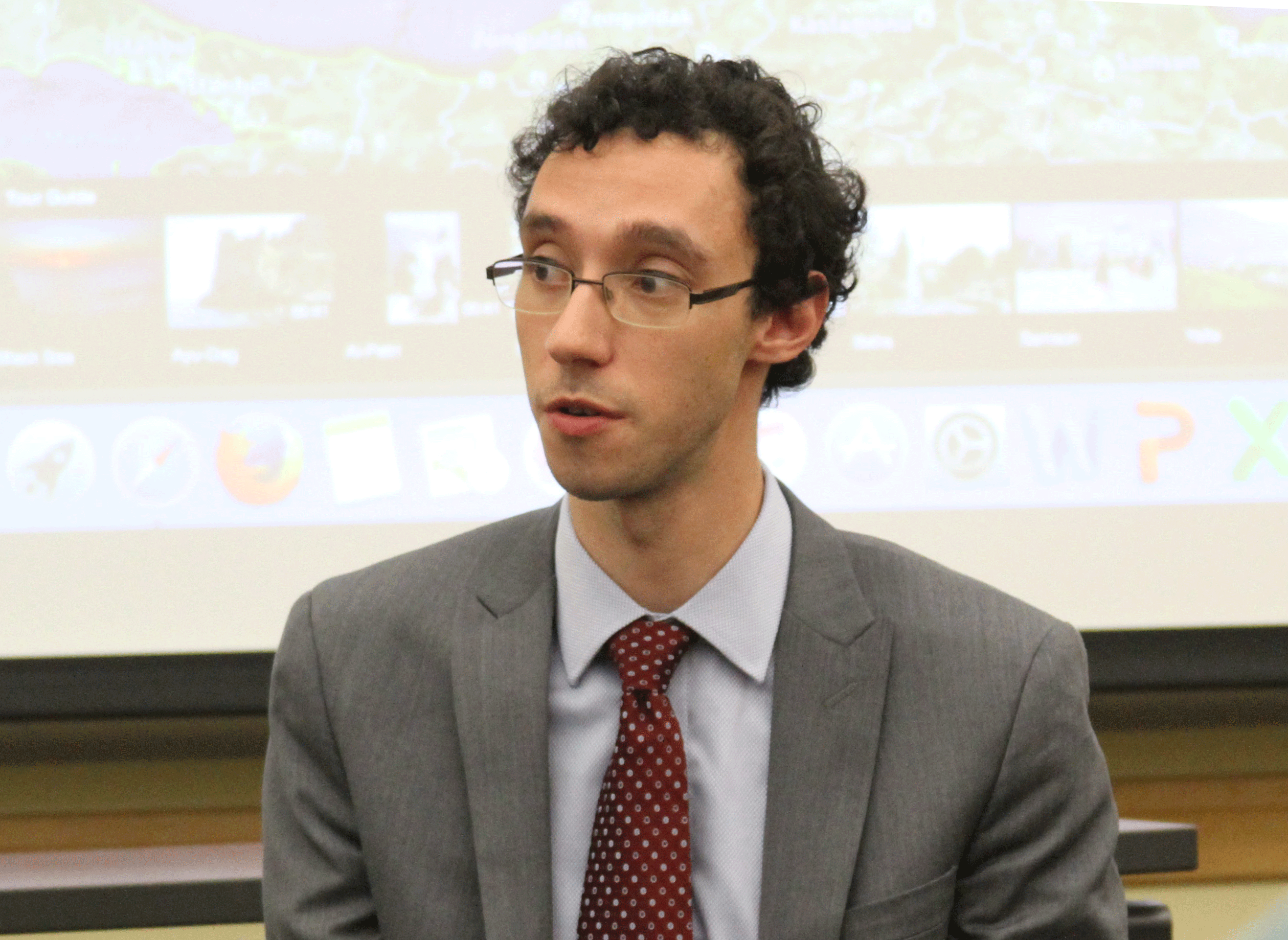 Guest Lecturer: Benjamin Sacks
Guest Lecturer: Benjamin Sacks
Benjamin Sacks is a Ph.D. candidate in history at Princeton University and the inaugural Graduate Fellow of the Center for Digital Humanities. He is deeply interested in the confluence of empire, geography and planning, as well as in the history of urbanization. He is the recipient of a number of national prizes and scholarships, including the Beinecke National Scholarship for Graduate Study (2009), the Society for American City and Regional Planning History's Montequin Prize (2013) for best paper on North American colonial planning history. He is one the youngest scholars ever to be elected to the fellowship of the Royal Geographical Society. He is also a graduate of Tufts.
Readings:
- Connectography: Mapping the Future of Global Civilization by Parag Khanna (New York: 2016), pp 3-63
- No One’s World: The West, the Rising Rest and the Coming Global Turn by Charles Kupchan (New York, 2012), pp 146-205
Tuesday, September 27
Twenty-First Century Warfare
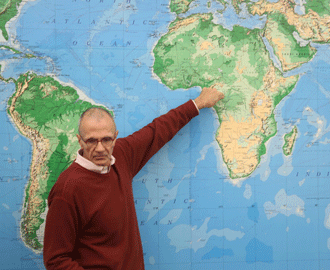 Guest Lecturer: Richard Shultz
Guest Lecturer: Richard Shultz
Richard H. Shultz is Professor of International Politics and Director of the International Security Studies Program at The Fletcher School of Law and Diplomacy at Tufts University. He has held three chairs: Olin Distinguished Professor of National Security, U.S. Military Academy; Secretary of the Navy Senior Research Fellow, Naval War College; and Brigadier General Oppenheimer Chair of War-fighting Strategy, U.S. Marine Corps. Since the mid-1980s, he has served as a security consultant to various U.S. government agencies concerned with national security. His new book is on the U.S. Marine Corps' 2004-2008 counterinsurgency campaign in Iraq titled, The Marines Take Anbar: The Four-Year Fight to Defeat al Qaeda in Iraq. He has also initiated a new research project with Dr. Querine Hanlon of the United States Institute of Peace that will focus on designing a new U.S. approach to Security Sector Reform that draws on existing theory and international practice, as well as U.S. experience, to identify flexible tools for addressing dysfunctional security sectors in fragile states.
Readings:
- Al Qaeda, The Islamic State and the Global Jihadist Movement: What Everyone Needs to Know by Daniel Byman (New York: 2015)
- A History of ISIS by Fawaz A Gerges (New Jersey, 2016)
Thursday, September 29
Screening of “The Diplomat”
Tuesday, October 4
Power and Politics: The World as Seen from the United States
Readings:
- The Long Game: How Obama Defied Washington and Redefined America’s Role in the World by Derek Chollet (New York: 2016), pp 1-150
- Foreign Policy Begins at Home: The Case for Putting America’s House in Order by Richard Haass (New York: 2013), pp 81-120
- War by Other Means: Geoeconomics and Statecraft by Robert D Blackwill and Jennifer M Harris (Cambridge: 2016), pp 220-257
- “The Search for Stability” by Henry A Kissinger, Foreign Affairs, July 1, 1959
- “Shaping American Foreign Policy: New Realities and New Ways of Thinking” by George P Shultz, Foreign Affairs, March 1, 1985
- “Scoring Obama’s Foreign Policy: A Progressive Pragmatist Tries to Bend History” by Martin Indyk et al, Foreign Affairs, April 20, 2016
Thursday, October 6
Power and Politics: The World as Seen from Europe
Readings:
- Of Paradise and Power: America and Europe in the New World Order by Robert Kagan (New York: 2003), all
- The Breaking of Nations: Order and Chaos in the Twenty-First Century by Robert Cooper (UK: 2003), pp 153-172
- “Interview with Robert Cooper” from European Geostrategy, February 17, 2013
- European Union Security Strategy 2003: “A Secure Europe in a Better World”, European Union, December 2003
- European Union Security Strategy 2016: “Shared Vision, Common Action: A Stronger Europe”, European Union, June 2016
Tuesday, October 11
No Class
Thursday, October 13
The Return of Russia
Readings:
- Mr. Putin: Operative in the Kremlin by Fiona Hill and Clifford Gaddy Washington, DC: 2015)
- Putinism: Russia and its Future with the West by Walter Laqueur (Washington, DC: 2015), pp 1-207
- Russia’s Islamic Threat by Gordon M Hahn (UK: 2007), pp 1-29
Tuesday, October 18
The Future of the Nation-State
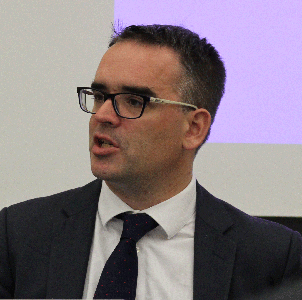 Guest Lecturer: Thomas Weber
Guest Lecturer: Thomas Weber
Thomas Weber is Professor of History and International Affairs as well as the founding Director of the Centre of Global Security and Governance at the University of Aberdeen in Scotland. Weber's research and teaching expertise lies in European, international, and global political history. Before coming to Aberdeen, Weber held fellowships or taught at Harvard University, the Institute for Advanced Study in Princeton, the University of Pennsylvania, the University of Chicago, and the University of Glasgow. His first book, Lodz Ghetto Album, won a 2004 Golden Light Award and a 2005 Infinity Award. His second book, Our Friend “The Enemy” was the recipient of the 2008 Duc d’Arenberg History Prize. His latest book, Hitler's First War, was published in English by Oxford University Press in the autumn of 2010. Weber is the proponent of an initiative to establish Truth Commissions in Europe and the Mediterranean basin.
Readings:
- The Breaking of Nations: Order and Chaos in the Twenty-First Century by Robert Cooper (UK: 2003), pp 1-80
- Diplomacy by Henry Kissinger (New York: 1994), pp 804-36
- Postwar: A History of Europe since 1945 by Tony Judt (New York: 2006)
Thursday, October 20
The Essence of Diplomacy: An Overview
Readings:
- Diplomacy by Harold Nicholson (London/Oxford/New York: 1939), all
- “The Future of Our Professional Diplomacy” by George Kennan, Foreign Affairs, July 1955
- “The Decline of Diplomacy” by Lord Vansittart, Foreign Affairs, January 1950
- Peace and War by Raymond Aron (New York: 2003, originally 1966), pp 575-789
Tuesday, October 25
No Class
Thursday, October 27
Review Session, Discussion and Working Groups
Friday, October 28 - Saturday, October 29
Weekend Immersion
"The Challenge of Collective Security: Why Is it so Difficult to Achieve?"
and "The 2011 Uprisings in Libya: Which Lessons to Learn?"
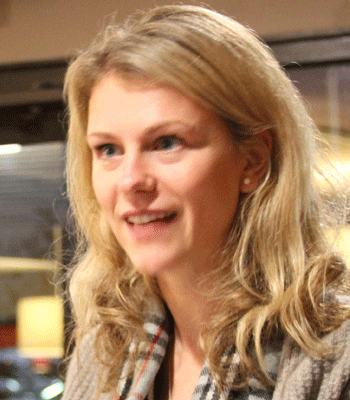 Guest Scholar: Inez Freiin von Weitershausen
Guest Scholar: Inez Freiin von Weitershausen
Inez Freiin von Weitershausen obtained her PhD at the London School of Economics and Political Science with a thesis on European crisis cooperation during the 2011 uprisings in Libya. Prior to coming to London, she worked at the European Parliament and the European External Action Service in Brussels and for a law firm in Frankfurt. Inez holds degrees from Bucerius Lawschool, Hamburg, and the University of Bonn, and gained international experience when studying at Sciences Po Paris, Kalamazoo College, MI and Georgetown University, and when teaching at the Dubrovnik School of Diplomacy, Croatia.
Readings:
First Lecture:
- Saint Augustine (2005) “From the City of God against the Pagans” in International Relations in Political Thought, Oxford: OUP, pp. 119-135 (read pp. 126-9).
- Mendez, Ruben P. (1999) “Peace as a Global Public Good” in Global Public Goods: International co-operation in the 21st century, New York: OUP, pp. 382-411 (read pp.388-93).
- Höpli, Eveline (2012) “Multinationals: Power and Responsibility” on the The CSS Blog, Center for Security Studies, ETH Zurich (available online)
Second Lecture:
- Hastings, Michael (2011), “Inside Obama's War Room, How he decided to intervene in Libya – and what it says about his evolution as commander in chief” (available online)
- Erlanger, Steven (2011), “By His Own Reckoning, One Man Made Libya a French Cause” (available online)
- House of Commons, Foreign Affairs Committee (2016), “Libya: Examination of intervention and collapse and the UK’s future policy options”, Third Report of Session 2016–17
- “Libya No-Fly Resolution Reveals Global Split in UN” by Julian Borger, The Guardian, March 18, 2011 (available online)
- “Libya: Where Do NATO Countries Stand?” by BBC, April 21, 2011 (available online)
- José Filipe Moraes Cabral (Portugal) on Libya, UN Media, March 28, 2011 (available online)
- “Germany and the UN: Still Fighting over Libya” by Richard Gowan, European Council on Foreign Relations, March 22, 2013 (available online)
- “Germany and the Security Council: Neither too Strong nor too Weak” by Richard Gowan, German Review on the United Nations, 2013
- “South Africa’s About-Turn on Libya: Is Speaking with the AU/BRIC Majority Defending the Indefensible?” by Candice Moore, LSE, July 26, 2011 (available online)
- “Humanitarian Interventionism Brazil Style?” by Matias Spektor, Americas Quarterly, Summer 2012 (available online)
- “Portugal and the Recognition of the National Transitional Council of Libya” by Paulo Gorjao, IPRIS Lusophone Countries Bulletin, July 2011
- “India and the Libyan Crisis: Flirting with the Responsibility to Protect, Retreating to the Sovereignty Norm” by Alan Bloomfield, Contemporary Security Policy, 2015
- “Power and Practice: Negotiating the International Intervention in Libya” by Rebecca Adler-Nissen and Vincent Pouliot, European Journal of International Relations, 2014
- “The Use of Force to Protect Civilians and Humanitarian Action: The Case of Libya and Beyond” by Bruno Pommier, International Review of the Red Cross, December 2011
- “The Impact of the Libya Intervention Debates on Norms of Protection” by Sarah Brockheimer et al, Global Society, 2016
Part II
Toward a New Balance: Contending with Today’s and Tomorrow’s Challenges
Tuesday, November 1
Leadership and Diplomacy
Public Lecture: “Thinking the Unthinkable”
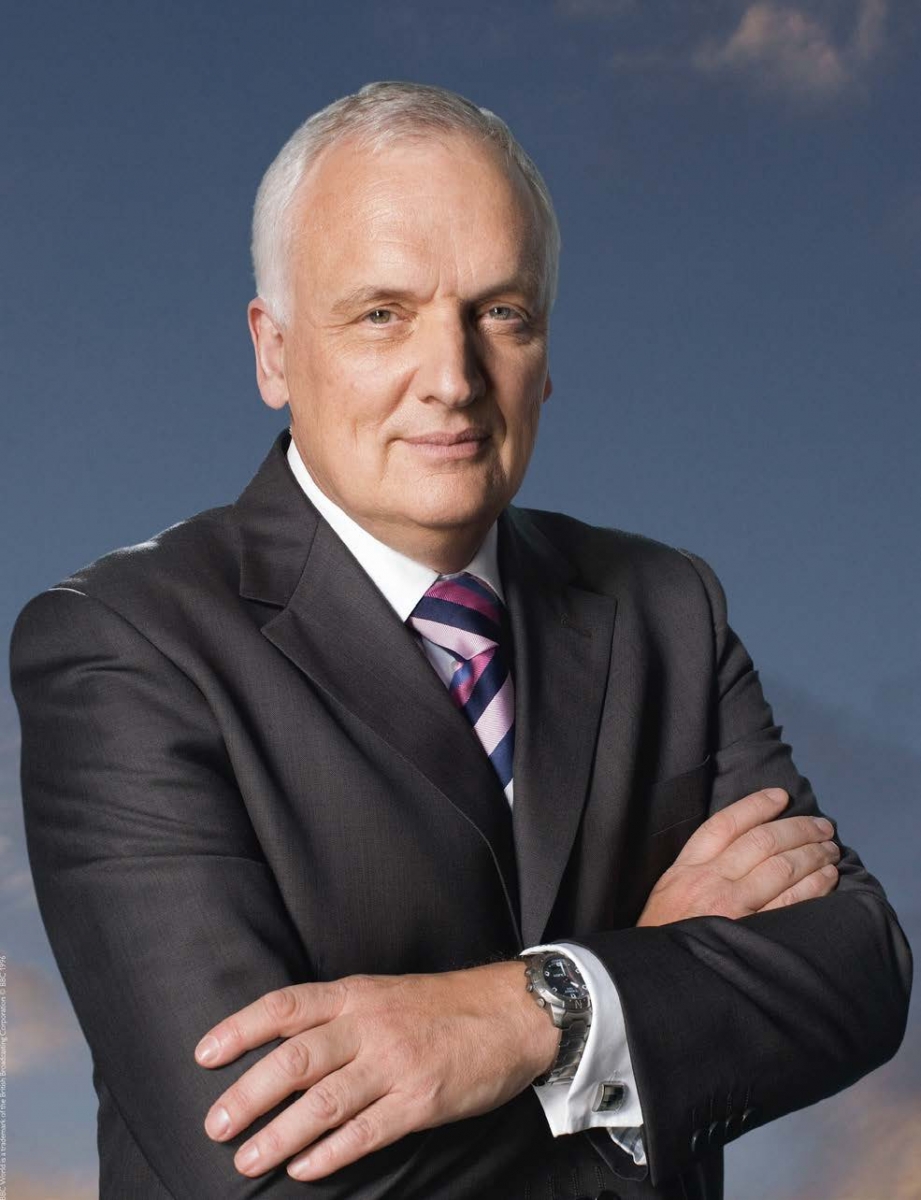 Guest Lecturer: Nik Gowing, INSPIRE Fellow
Guest Lecturer: Nik Gowing, INSPIRE Fellow
Nik Gowing was a main news presenter for the BBC’s international 24-hour news channel BBC World News from 1996-2014. For 18 years he worked at ITN, where he was bureau chief in Rome and Warsaw, and Diplomatic Editor for Channel Four News (1988-1996). He has been a member of the councils of Chatham House (1998–2004), the Royal United Services Institute (2005–present), and the Overseas Development Institute (2007-2014), the board of the Westminster Foundation for Democracy including vice chair (1996-2005), and the advisory council at Wilton Park (1998-2012 ). In 1994 he was a fellow at the Joan Shorenstein Barone Center in the J. F. Kennedy School of Government, Harvard University. In 2014, Gowing was appointed a Visiting Professor at Kings College, London in the Faculty of Social Science and Public Policy. He is a member of the World Economic Forum’s Global Agenda Council on Geo-Economics. He has extensive reporting experience over three decades in diplomacy, defence and international security. His published Harvard study in 1994 challenged conventional wisdom of an automatic cause and effect relationship between real-time television coverage of conflicts (the ‘CNN factor’) and the making of foreign policy. His 1997 study for the Carnegie Commission on Preventing Deadly Conflict in Washington, DC, similarly challenged conventional wisdom on assumptions about a role for the media in preventing conflict. Like the Harvard study it received wide attention and stirred new international debate. In May 1998 he completed an extended, acclaimed study funded by the European Commission into the effect of information control on humanitarian organisations and the media in the Great Lakes Crisis of Central Africa October 1996 - May 1997. His most recent peer-reviewed study is ‘Skyful of Lies and Black Swans: the New Tyranny of Shifting Information Power in Crises’ . Published in May 2009, it has made a significant impact worldwide because of its uncomfortable challenge to conventional assumptions of the nature of power in major, unexpected crises.
Readings:
- “The Lost Art of Leadership: How Groupthink Is Depriving the West of Vision” by Nik Gowing and Chris Langdon, The World Today, June & July 2016
- “Thinking the Unthinkable: A New Imperative for Leadership in the Digital Age” by Nik Gowing, Chartered Institute of Management Accounts, 2015
- “Thinking the Unthinkable: Facing the New Leadership Challenge”, Deloitte brainstorming session, June 7, 2016
Listen to the Audio Recording of this Lecture
Thursday, November 3
Thinking the Unthinkable, part II with Guest Lecturer: Nik Gowing
Tuesday, November 8
No Class – Friday’s Schedule
Thursday, November 10
Grand Strategy and Euro-Asia’s Geopolitical Stability
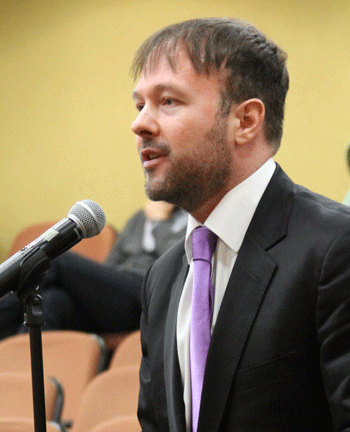 Guest Lecturer: Zoltan Feher
Guest Lecturer: Zoltan Feher
Zoltan Feher is a diplomat from Hungary and a PhD candidate in International Relations at The Fletcher School. He worked as a diplomat since 2002, most recently as Hungary’s Deputy Ambassador and Charge d’Affaires in Ankara, Turkey. Earlier, he was a Foreign Policy Analyst and Press Attache at the Embassy of Hungary in Washington, DC. Last year, he was at the Harvard Kennedy School where he earned a Master in Public Administration degree and worked as Professor Joseph Nye’s assistant. A lawyer and political scientist by training, he has also taught International Relations at various Hungarian universities. His research interests include geopolitics, grand strategy, realism, US foreign policy, Transatlantic relations, as well as Central and Eastern Europe.
Readings:
- The Pivot: The Future of American Statecraft in Asia by Kurt M Campbell (New York: 2016), pp 135-52, 294-349
- India at the High Table: The Quest for Regional Autonomy and Strategic Autonomy by Teresita C Schaffer and Howard B Schaffer (Washington, DC: 2016), pp 43-106
- Peace and War by Raymond Aron (New York: 2003, originally 1966), pp 1-176
Listen to the Audio Recording of this Lecture
Tuesday, November 15
Today’s Cyber Challenges
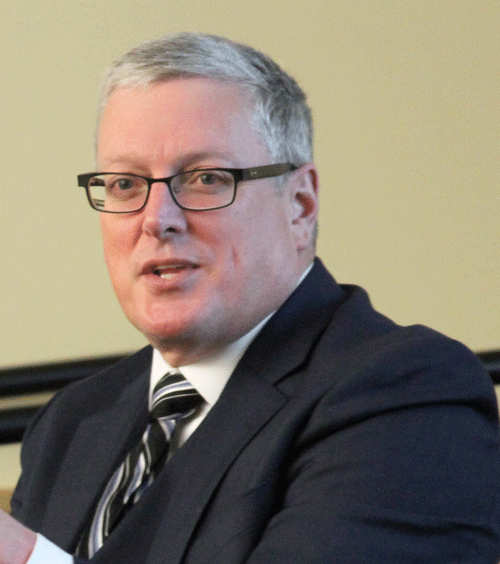 Guest Lecturer: G. Alexander Crowther
Guest Lecturer: G. Alexander Crowther
Alexander Crowther has extensive government service, including a decade each in the Cold War, the post-Cold War era and the post 9/11 era. He has worked as a Western Hemisphere specialist, a strategist and a political advisor. He served overseas eight times: three times in Latin America, twice in Korea, twice in Iraq and once in Belgium. He has a variety of awards from the Departments of Defense and State as well as the Canadian government. His work at the strategic level includes tours at the Army Staff, the Joint Staff J5 (Strategic Plans & Policies), and as a Research Professor at Strategic Studies Institute (the US Army’s think tank). He was personally selected to be a Counterterrorism Advisor for the US Ambassador to Iraq, a Political Advisor for the MNC-I Commander and a Special Assistant for the Supreme Allied Commander, Europe. He is currently a Cyber Policy specialist in the Expert Consultant program at the Center for Technology and National Security Policy (CTNSP) at the National Defense University in Washington, DC. He is also an adjunct Senior Political Scientist at the RAND Corporation and an adjunct Research Professor of National Security Studies at the Strategic Studies Institute.
Readings:
- "The Meaning of the Cyber Revolution: Perils to Theory and Statecraft" by Lucas Kello, International Security, Fall 2013
- Cyberspace and the State: Toward a Strategy for Cyber-power by David J Betz and Tim Stevens (London: 2011), chapters 1, 2, 4
- Dark History: The Secret History of Cyber War by Fred Kaplan (New York: 2016), chapters 1, 9, 15
Thursday, November 17
Conflict Prevention from a Practitioner's Perspective
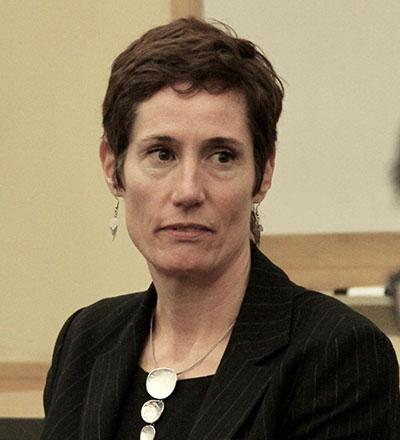 Guest Lecturer: Joëlle Jenny
Guest Lecturer: Joëlle Jenny
Joëlle Jenny is a Fellow of the Weatherhead Centre for International Affairs at Harvard University. Most recently she was the Director for Security Policy and Conflict Prevention at the European Union’s External Action Service. In that capacity she oversaw the EU's external security policies in the areas of non-proliferation, arms control and disarmament; counter-terrorism/countering violent extremism; cyber, maritime and space security; conflict prevention, peacebuilding and mediation; and EU sanctions.
Prior to joining the EEAS she worked successively as a Swiss and a British diplomat, covering international security issues, non-proliferation/arms control, conflict prevention and peace building, including at the UN. She has worked for the UK’s Department for International Development, the Swiss Foreign Ministry and the International Committee of the Red Cross. She worked extensively in Iraq, Yemen and the Palestinian Territories, and held postings in New York, Angola, Bosnia-Herzegovina, Cambodia, Rwanda and the former Yugoslav Republic of Macedonia. She was also a research assistant at NATO.
Readings:
- World Development Report 2011: Conflict, Security and Development by the World Bank, Overview (pp 1-39)
- Why Peace Fails: The Causes and Prevention of Civil War Recurrence by Charles Call (2012), Chapters 1, 4, 7 and 9 (you need to access them from the Tufts network for them to be free)
- The Psychology of Modern Conflict: Evolutionary Theory, Human Nature and a Liberal Approach to War by K Payne (2015), Chapters 1 (Introduction), 3 (Classical Realists on Honor), and 9 (Conclusion: Heroic Warfare)
-
The Fragility Studies Group, US Institute of Peace:
--“US Leadership and the Challenge of State Fragility” by William Burns et al
-- “Preparing for Complex Conflicts” by Robert D Lamb and Melissa Gregg
-- “Implementing a Unified Approach to Fragility: Lesson Learned from Burma” by Derek Mitchell et al - A Micro-Level Perspective on the Dynamics of Conflict, Violence and Development by Patricia Justino et al (2013), chapter 5 (Inequality, Conflict, and Policy: A Review of some MICROCON Findings, Frances Stewart)
Tuesday, November 22
No Class
Thursday, November 24
No Class – Thanksgiving
Tuesday, November 29
Review Session, Discussion and Working Groups
Thursday, December 1
India, Pakistan and Kashmir
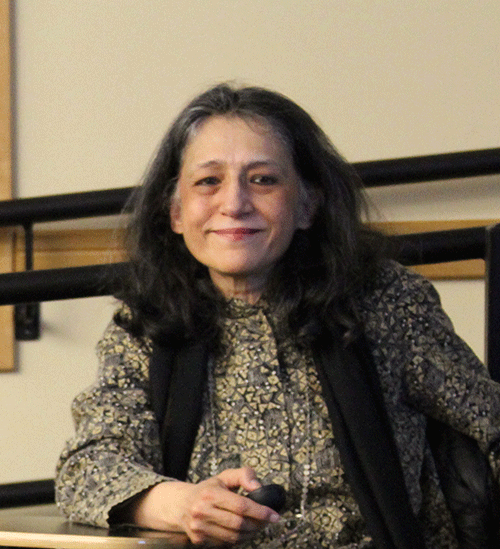 Guest Lecturer: Ayesha Jalal
Guest Lecturer: Ayesha Jalal
Ayesha Jalal is the Mary Richardson Professor of History at Tufts University. Jalal has been Fellow of Trinity College, Cambridge (1980-1984); Leverhulme Fellow at the Centre of South Asian Studies, Cambridge (1984-1987); Fellow of the Woodrow Wilson Center for International Scholars in Washington D.C. (1985-1986); and Academy Scholar at the Harvard Academy for International and Area Studies (1988-1990). From 1998-2003 she was a MacArthur Fellow. Her publications include The Sole Spokesman: Jinnah, the Muslim League and the Demand for Pakistan; The State of Martial Rule: the Origins of Pakistan’s Political Economy of Defence; and Democracy and Authoritarianism in South Asia: a Comparative and Historical Perspective. Jalal has co-authored Modern South Asia: History, Culture and Political Economy with Sugata Bose. Her study of Muslim identity in the subcontinent, entitled Self and Sovereignty: the Muslim Individual and the Community of Islam in South Asia since c.1850. Her most recent book is Partisans of Allah: Jihad in South Asia.
Readings:
- “Kashmir Scars” by Ayesha Jalal, The New Republic, July 23, 1990
- Hindu Rulers, Muslim Subjects by Mridu Rai (Princeton: 2004), chapter 2
- Languages of Belonging: Islam, Regional Identity and the Making of Kashmir by Chitralekha Zutshi (New York: 2004), chapter 6
- Until My Freedom Comes by Sanjay Kak (ed.) (New Delhi: 2011), pp.43-46, 250-278
- “Avoiding War in Kashmir” by Sumit Ganguly, Foreign Affairs, December 1, 1990
- “India’s Options in Pakistan: What Will Follow the Attack in Kashmir” by George Perkovich, September 21, 2016
- “South Asia’s High Nuclear Stakes” from BBC News, 2003
- India After Gandhi: The History of the World’s Largest Democracy by Ramachandra Guha (New Delhi: 2012), pp 349-364
- “New Geopolitics of China, India, and Pakistan” from a Council on Foreign Relations Symposium, May 26, 2016
Listen to the Audio Recording of this Lecture
Tuesday, December 6
Nuclear Challenges
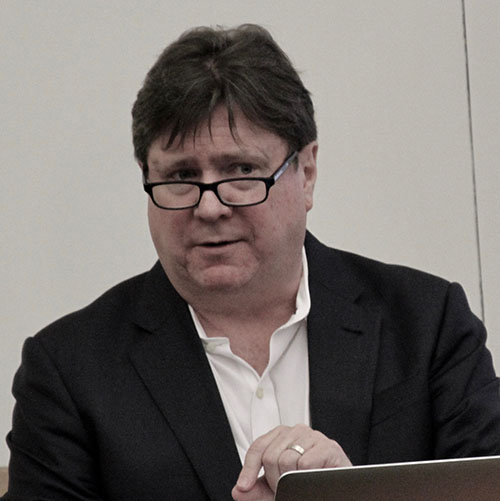 Guest Lecturer: Jim Walsh
Guest Lecturer: Jim Walsh
Dr. Jim Walsh is a Senior Research Associate at the Massachusetts Institute of Technology’s Security Studies Program (SSP). Dr. Walsh's research and writings focus on international security, and in particular, topics involving nuclear weapons, the Middle East, and East Asia. Dr. Walsh has testified before the United States Senate and House of Representatives on issues of nuclear terrorism, Iran, and North Korea. He is one of a handful of Americans who has traveled to both Iran and North Korea for talks with officials about nuclear issues. His recent publications include “Stopping North Korea, Inc.: Sanctions Effectiveness and Unintended Consequences” and “Rivals, Adversaries, and Partners: Iran and Iraq in the Middle East” in Iran and Its Neighbors. He is the international security contributor to the NPR program “Here and Now,” and his comments and analysis have appeared in the New York Times, the New York Review of Books, Washington Post, Wall Street Journal, ABC, CBS, NBC, Fox, and numerous other national and international media outlets. Before coming to MIT, Dr. Walsh was Executive Director of the Managing the Atom project at Harvard University’s John F. Kennedy School of Government and a visiting scholar at the Center for Global Security Research at Lawrence Livermore National Laboratory.
Readings:
- The Second Nuclear Age: Strategy, Danger and the New Power Politics by Paul J Bracken (New York: 2012), introduction and chapters 1, 2, 3, 4, 8, 9
- Nuclear Strategy in the Modern Era by Vipin Narang (Princeton: 2014), chapters 1, 2 10
- “Nuclear Strategies of Emerging Nuclear Powers: North Korea and Iran” by Vipin Narang, The Washington Quarterly, Spring 2015
- “Evaluating Key Components of a Joint Comprehensive Plan of Action with Iran” Testimony by Dr Jim Walsh before the Senate Foreign Relations Committee, June 25, 2015
- “The Iran-North Korea Strategic Alliance” Testimony by Dr. Jim Walsh before the House Committee on Foreign Affairs, July 28, 2015
- “To Stop the Missiles, Stop North Korea, Inc” by Jim Walsh and John Park, The New York Times, March 10, 2016
Listen to the Audio Recording of this Lecture
Thursday, December 8
Environmental Diplomacy and the High North
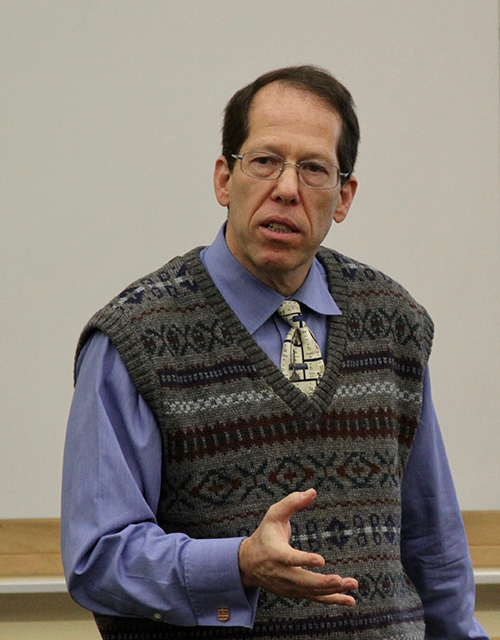 Guest Lecturer: Paul Berkman
Guest Lecturer: Paul Berkman
Professor Berkman is an internationally-renown scientist, explorer, educator and author who has made significant contributions to the sustainable development of our world during the past three decades. He is especially motivated to establish connections between science, diplomacy and information technology to promote cooperation and prevent discord for good governance of regions beyond sovereign jurisdictions – which account for nearly 70% of the Earth. Paul was a visiting professor at the University of California at the age of 24, after wintering in Antarctica on a SCUBA research expedition the previous year, and travelled to all seven continents before the age of 30. He was former Head of the Arctic Ocean Geopolitics Programme at the University of Cambridge and a Research Professor at the University of California Santa Barbara. In September 2015, Prof. Berkman joined the Fletcher School of Law and Diplomacy at Tufts University as Professor of Practice in Science Diplomacy. In addition, he is the founder and sole-owner of EvREsearch LTD, Chief Executive of DigIn (Digital Integration Technology Limited) and Chair of the Foundation for the Good Governance of International Spaces. Prof. Berkman also is the coordinator of the international Arctic Options and Pan-Arctic Options projects, which are funded by government agencies from 2013-2020, addressing Holistic Integration for Arctic Coastal-Marine Sustainability. He convened and chaired the Antarctic Treaty Summit in Washington, DC on the 50th anniversary of the Antarctic Treaty, involving 40 sponsoring institutions from around the world along with a keynote address from the United Nations Secretary-General as well as a joint resolution adopted with unanimous consent in the United States House of Representatives and the United States Senate. He also convened the NATO advanced research workshop that became the first formal dialogue between NATO and Russia regarding Arctic security, stimulating subsequent presentations to the Norwegian Parliament and NATO Maritime Command. In addition, Prof. Berkman co-convened and chaired the Workshop on Safe Ship Operations in the Arctic Ocean at the International Maritime Organization with more than seventy participating organizations. He also was co-chair of the International Conference on Data Sharing and Integration for Global Sustainability convened by the International Council of Science / World Data System and Committee on Data for Science and Technology. Professor Berkman serves as an expert consultant and principal investigator on diverse international projects, sharing insights directly with Heads of State and other government leaders as well as captains of industry. For his contributions, Prof. Berkman has received the: Antarctic Service Medal from the United States Congress; NASA Faculty Fellowship at the Jet Propulsion Laboratory, California Institute of Technology; Byrd Fellowship at The Ohio State University; Japan Society for the Promotion of Science Fellowship at the National Institute of Polar Research in Japan; Erskine Fellowship in the Gateway Antarctica, University of Canterbury in New Zealand; and Fulbright Distinguished Scholarship at the University of Cambridge in the United Kingdom as well as being elected to the Norwegian Scientific Academy for Polar Research.
Readings:
- Diplomacy on Ice: Energy and the Environment in the Arctic and Antarctic, editors Saleem H Ali and Rebecca Pincus (New Haven: 2015), introduction and chapters 1 and 10
- “Keeping the Arctic ‘Cold’: The Rise of Plurilateral Diplomacy?” by Cornelieu Bjola, Global Policy, November 2013
- “The Arctic Council at 20 Years: More Necessary than Ever” Speech by Parliamentary Secretary Goldsmith-Jones, Ottawa, Canada, September 29, 2016
- “Governance and Environmental Change in the Arctic Ocean”by Paul Arthur Berkman and Oran R Young, Science, April 17, 2009
- “International Spaces Promote Peace” by Paul Arthur Berkman, Nature, November 2009
- “Preventing an Arctic Cold War” by Paul Arthur Berkman, The New York Times, March 12, 2013
- “US-Russia Reset and the First Arctic Head-of-State Summit” by Paul Arthur Berkman, Alaska Dispatch, Week of December 5, 2016 (advance copy)
- “Regional Governance without Self-Government: Dynamism and Change in the North American Arctic” by Adrienne M Davidson, from Arctic Yearbook 2015
- “Greenland & the Arctic Council: Subnational Regions in a Time of Arctic Westphalianisation” by Inuuteq Holm Olsen and Jessica M Shadian, from Arctic Yearbook 2016
- “Getting into the Game: America’s Arctic Diplomacy” by Asfeir Sigfusson, American Foreign Service Association, 2016
- “Thawing Ice and Chilly Diplomacy in the Arctic” The New York Times Editorial Board, April 27, 2015
- “Stability and Peace in the Arctic Ocean through Science Diplomacy” by Paul Arthur Berkman, Science and Diplomacy, June 23, 2014
- “Putin Says Arctic Must Stay Free from Geopolitical Gambling”, TASS, August 30, 2015
- “Cold War in a Warming Place: Can Eastern and Western Scientists Effectively Partner in the Arctic?” by Eli Kintisch, Science and Diplomacy, December 16, 2015
- Environmental Security in the Arctic Ocean, PA Berkman and AN Vylegzhanin (eds), (Netherlands: 2013), chapter 14: “Arctic Futures: The Power of Ideas”
Recommended
- “China’s Bilateral Diplomacy in the Arctic” by Jingchao Peng and Njord Wegge, Polar Geography, 2015
- “Scientific Treaty Emerges from Arctic Council” by Penelope Overton, Press Herald, October 7, 2016
- “Fostering Scientific Diplomacy in the Arctic” by Morgane Fert-Malka, Russia Direct, September 19, 2016
- “We’ll Always Have Paris” by Michael Liebreich, Bloomberg New Energy Finance, December 16, 2015
- “The G7 Climate Mandate and the Tragedy of the Horizons” by David Livingston, Carnegie Endowment for International Peace, 2016
- “A Reader’s Guide to the Paris Agreement” by Robinson Meyer, The Atlantic, December 16, 2015
